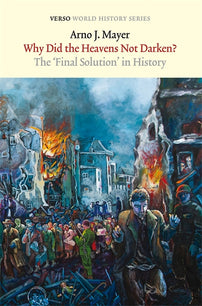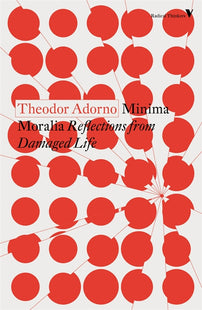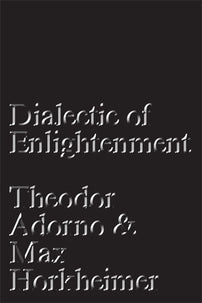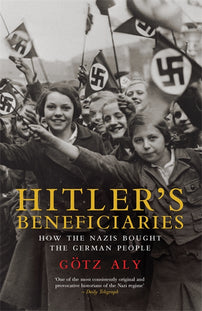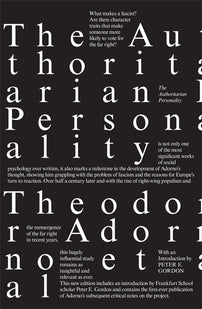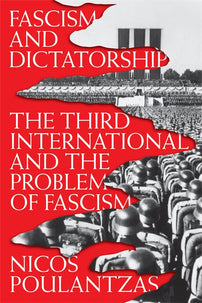We never left the Zone of Interest
Jonathan Glazer’s Zone of Interest has been read by critics as a reflection of the banality of evil. But, what if it in its materialist insistence on impersonal forces, it is actually about not evil's banality but its ubiquity?

Jonathan Glazer’s Zone of Interest was fated for an odd reception. Not simply because he has produced another of the always controversial films about the Shoah. Not only because the film was released while Israel, which has used the Shoah as both a shield and a bludgeon, is perpetrating its own genocide against the Palestinians. But because Glazer’s film is materialist, implicating not just the viewer but the world itself.
A brief recap: the film shows the life of Rudolf Höss, the commandant of Auschwitz, his wife, Hedwig, and their young five children, as they build their ideal life on a homestead abutting the gates of the Nazi concentration camp. Hedwig receives “treats” and clothing looted from Jews and dispenses them to her servants and friends; she tends her flower and vegetable garden (“a paradise garden,” her mother calls it), to be completed by vines covering the unseemly gray of the camp walls. The children play with gold teeth ripped from the camp’s victims. They splash in the garden’s pool and pretend to gas one another in the greenhouse. Höss attends to his business—evaluating crematoria designs, managing the camp officers—but still finds time to horseback ride with his son and read bedtime stories to his daughters. Friends come over and gossip at the kitchen table, slaves and servants tidy up and serve schnapps. But this idyll is short lived: Höss receives a promotion that takes him from his beloved Auschwitz to dreary Oranienburg. Hedwig, his wife, stays behind, refusing to abandon the life she has built for herself and her children. Höss floats, detached, around Nazi high society, prepares for the deportation of Hungary’s Jewish population and—oh happy days—is eventually told he can return to Auschwitz to run the operation which, due to his logistical expertise and unparalleled service, now bears his name.
As far as story goes, this is the entirety of Zone of Interest. Nor does the film compensate for its lack of plot with rich characterization or psychological depth (despite masterful performances, particularly that of Sandra Hüller). Rudolf is reserved and workmanlike, his voice never rises, his movements are never hurried (save one scene of minor panic), his affect remains flat. Hedwig displays more complexity, but barely: she walks with an ungainly hobble, she furtively delights in her loot, she putters about her garden, her pride and joy, she lashes out at her servants. Her only opaque interaction comes when she offers a Polish worker a cigarette, ordering him to stand and smoke while she sizes him up (a potential affair while Rudolf is in Oranienburg, or the casual interest an exterminator’s wife might take in an insect?).
The film is radically uninterested in its human subjects, which is part of why the constant critical invocations of Arendt’s banality of evil misses the mark. Höss, as many have pointed out, was not merely a “company man,” he was a committed Nazi—an early adopter, even—and a man who pursued his work with singular acumen. He is not a man who speaks or thinks only in cliché, who has subordinated his will or capacity for thought to the party. He is portrayed, rather, as a man with a unique genius and fervor for extermination, a quiet egomaniac with an investment in his work for reasons of personal satisfaction as well as professional and ideological reasons. But most of all, according to a letter of recommendation in the film, “He is a model settler farmer, and an exemplary German pioneer of the East”.
If there is any characterization essential to the film it is this: the Höss’s are settlers. When Hedwig shows her mother her “paradise garden,” she states, “this was a field three years ago”— she “made the desert bloom,” as it were, turning “unproductive” land, insufficiently developed, into a homestead complete with concentration camp, the ultimate paean to the cult of productivity. “They’d have to drag me out of here” Hedwig says, when Rudolf tells her that they must leave for Oranienburg,
this is our home. We’re living how we dreamed we would…everything we want on our doorstep. And our children are strong, healthy and happy. Everything the Furher said about how to live is how we do. Go East. Living Space. This is our living space. This is our living space.
In a film with little dialogue, these relatively frequent references to the land-as-settlement draw our attention to the land itself, and to the “living space” constructed upon it. The Höss’s pool, the centerpiece of the yard, is filled by a shower-like faucet, the head of which is clearly intended to recall the gas chambers. First you see it framed against the camp wall, its association unmistakable. Then the reverse shot, framed against the greenhouse. It is rendered innocuous again by the angle, but the association lingers. Or consider: the youngest Höss boy playing with toy soldiers, a common enough activity but one that rarely prompts consideration of who those soldiers are, what they have done, and how they were assembled. Here, the question is unavoidable. There is little difference between the toy soldiers and the looted gold teeth and the shower head: the things that we use for our enjoyment, viewed only slightly askew, are instruments of death, war trophies.
What grows in Hedwig’s garden? Kohlrabi, runner beans, cabbages. How is it fertilized? Human ash from the crematoria. While fishing, Rudolf pulls a fragment of human bone from the river and rushes to collect his children playing nearby: they must be washed, the water is unclean. But the water is only as unclean as the soot-soaked air, which manifests in the following scene of manic scrubbing as black-flecked phlegm snorted into the sink. The very things that sustain the Höss family, Glazer seems to say, are drenched in death: the water filled with human debris, the air with flesh-smoke, the soil with ash. The paradise garden is the same as the death which makes it possible.
It is the Höss’s ownership of this nature, and the perversions of character such a nature produces, that are the subject of the film. Glazer’s formal choice to shoot the “action” by way of unobtrusive fixed cameras and microphones highlights the film’s impersonality. Characters move freely about the open spaces, filmed in wide angles as much to highlight the unimportance of the spaces’ human inhabitants as to give detail to the spaces themselves. We watch as if on a surveillance tape, an association that is almost literalized in the black and white night-vision interludes, in which a Polish servant furtively places apples in the dirt for Jewish slaves to find. Special equipment is required to film this act of solidarity and kindness: it is the negative image of the world, one which cannot be seen in the normal light of day. It is also, for that very reason, illicit, and the night-vision gives these scenes an aura of criminality missing from the bright, wide shots of the Höss’s homestead.
[book-strip index="1"]
Before Rudolf departs for Oranienburg, he stops to say farewell to his horse. “I love you” he says while nuzzling into its face. As Adorno and Horkheimer wrote, in Dialectic of Enlightenment: “The precondition of the fascists’ pious love of animals, nature, and children is the lust of the hunter. The idle stroking of children’s hair and animal pelts signifies: this hand can destroy…The caress intimates that all are the same before power, that they have no being in themselves.” The softness of Rudolf’s family life has little to say about the banality of evil, but everything to say about its ubiquity. The domination of nature leads to the domination of humans, who are, in a grotesque sense, returned to nature as raw material by the workings of Auschwitz. “When domination of nature is the true goal,” Adorno and Horkheimer write, “biological inferiority remains the ultimate stigma, the weakness imprinted by nature, the mark which invites violence.” We see the ash being dumped into the soil, and then, cut, Oranienburg smothered in gray, lifeless snow. It is as if the city were also blanketed in the ash of its victims.
Nor do domination and death stop at the camp gates. "The treatment of humanity as a resource and the demand that humanity is a purpose,” Werner Bonefeld writes in “Notes on Antisemitism, ” “both of these ideas, belong to the tradition of the Enlightenment.”
the limits of reason within the tradition of the Enlightenment whose project of 'civilisation' presupposes the continuous guarantee of private property…Nazism signaled not so much the end of reason but the application of reason to its own presuppositions, that is the primitive accumulation of capital.
Racial-ideological reasons for eastern settlement and mass-murder are only half of the picture: the other half is the accumulation of property. The Höss family loots luxury goods from their Jewish victims: a fur coat, lipstick, dresses, perfume, jewels. The land is seized from its Polish inhabitants, who are turned into slaves or servants. Hedwig comes from a working-class family—her mother used to clean for a Jewish family who, she wonders, may well be in the camp at the time of her visit—and the Höss’s class resentment and nouveau riche extravagance hang heavy over the film. Zone of Interest presents itself largely as a display of commodities, of which the land is the most important. Rudolf is served his schnapps in a crystal glass on a silver platter, Hedwig has her servants prepare a large, decadent breakfast for her and her mother. The first time we catch a glimpse of the camp is over the bow of a sailboat gifted by the Höss family to Rudolf— the boat is center frame in the foreground, the smoke and barbed wire just beyond. Look what makes this possible, Glazer demands.
Beyond the Höss’s personal gain, the material reasons for the Shoah are stressed as well. At the meeting which will inaugurate the plans for the extermination of Hungary’s Jews, a “Colonel Mauer” is promoted for “consistently hitting his labor targets.” “I get fan mail from CEOs for this man,” states a superior officer. The Höss family emerge as a microcosm for the vast project of primitive accumulation taking place across the European continent: the turning of people into labor inputs, into soil; the theft of art, land, architecture, and raw materials. The dialectic of enlightenment is precisely the ash in the soil, the gold tooth in the well-appointed bedroom.
~~~
Critics have taken issue both with Glazer’s formalism and his refusal to visually enter the world of the camps – perhaps an impermissible “aestheticization of the Holocaust” or a cowardly cop-out (sometimes, bafflingly, both are levelled at once). I think of the photographer George William Adam Rodger’s reaction to photographing the bodies at the freshly liberated Bergen-Belsen concentration camp: “I suddenly thought, ‘My God, what’s happened to me? This is the end … all this absolute horror… [and me] thinking of nothing but lovely compositions.'”
This is the apotheosis of the photographic way of seeing: complete alienation. Your own vision subordinated to the eye of the camera, everything form within the frame. To photograph is to freeze time—that is, to photograph is to make dead. It is, in a sense, a corollary to instrumental reason, the reduction of thought to the calculation of inputs and ends, the very reasoning which Adorno and Horkheimer saw operative in the camps, the heart of the dialectic of enlightenment. Why then the injunction against aestheticization? It does the victims a disservice, a dishonor even, to see others pantomime their suffering, which is horrible beyond empathy. But the very form of the cinema-eye, only slightly different from the photo-eye, is itself a recapitulation of this alienation. We cannot feel our way into the suffering, even if we see it, but we can feel our way into this lack of feeling.
[book-strip index="2"]
This is what prior films about the Shoah have misunderstood: they center the victims, whose plight is incomprehensible, even if it is visualizable. Glazer’s emphasis on the environment outside the camp avoids this problem while extending the film beyond the context of its subject-matter. Glazer’s disinterested lens forces the viewer into disinterestedness as well, that is, into contemplation rather than feeling— identification with the film’s characters, flat and evil as they are, is not possible, and indeed, it is not the point. One leaves the film, instead, thinking of concepts, of the world around them—with a heightened sense of the aesthetic, capable of seeing the everyday in a new light. And this light, like the light on the Höss’s yard, is harsh: when you see the soil now, is that all you will see? Are you capable, still, of ignoring the smell of flesh in the air?
Zone of Interest is, more than a dramatization of the Holocaust, a dramatization of the dialectic of enlightenment that led to it, and that continues to animate present conditions: from the world-historical crime of American mass-incarceration, to Frontex, to the hyper-violent exploitation of African mine workers. The Zone of Interest extends over the globe, the food is nurtured by ash, the water runs clear over the bones of the dead. It is only through the anti-empathetic camera of Glazer that we can reach such a conclusion.
~~~
Present day associations abound, none more so than Gaza. The gray of the camp walls, the settler-colonial emphases: Gaza looms over the film (as Glazer himself has subsequently confirmed). And yet, one wonders: could such a film have worked were the subject the genocide in Gaza? The answer, I think, is no. In the West, the Shoah is the original sin which inaugurated our present “rules-based international order,” the apogee of suffering by which all other suffering is measured. The Shoah at once stands in for suffering in general but in its singular place in Western discourse it absorbs, like a black hole, all other representations of suffering, collapsing the universal into the particular which, while it can be universalized, can only be universalized via self-reference. To suggest that the Nakba, say, or the genocide in Gaza could stand in for the universal suffering unleashed by settler-colonialism and capitalism and racial-ideology and industrial-modernity would be to subsume the suffering of the Shoah under its heading—an impermissible relativization of the Holocaust, so we’re told.
What’s more, triumphant liberal capitalism has made the ideology of the individual subject triumphant as well. Our understanding of atrocity in media is thus routed through the lens of individual protagonists and of their psychology (think only of the current effort to pin the genocide in Gaza squarely and solely on the shoulders of Benjamin Netanyahu). But this is a myopic view, one which will necessarily exclude those, like the Palestinians, with whom Westerners cannot or will not empathize, and of whom they cannot assume a similar subject position except via a kind of Westernization that bastardizes non-western subject and context alike.
What Zone of Interest does is to utilize the iconic status of the Shoah while eschewing both its visual language and the psychological depth of narrative. This, then, is a materialist film, one that is closer in its ambition to Japanese Fukeiron film than to any film in the Shoah canon. Atrocity is not, after all, a matter of individual psychology or individual perpetrators but large, depersonalized processes and the historical currents that bred them. (A lesson people claim to understand about the Shoah but which they forget at every instance).
The visual language of Holocaust Film looms large, then, because of its subversion, because of its absence. Just as Glazer refuses to film the interior of the camp while preserving its omnipresent soundscape, he also refuses, in a way, to make a Holocaust film at all. It is this gap between the expectations of genre and the film itself that generate such power, and such discomfort. Had this been a film about Gaza, a Western audience could simply turn away, miss the materialist ambitions, the cold lack of identification presumed to be a failure to empathize across cultural and political difference rather than an intentional function of the film itself (or, worse, the audience might lapse into a blind identification with the perpetrators, as so many have in the course of the Gaza Genocide).
[book-strip index="3"]
But in his formal refusals and in the unavoidable associations, Glazer has launched what may be an opening salvo in the decentering and desacralization of the Shoah in Western Art—which, once completed, will finally allow us to truly reckon with its historical content. That is, the sacralization of the Shoah in the West serves primarily to occlude an actual engagement with the Shoah itself, and thus every subsequent act of genocide as well, both those at the West's origin and those it and others continue to perpetrate. “Never Again” rings hollow when the conditions it refers to are regarded as historically unique.
As Adorno writes in Education After Auschwitz, “The premier demand upon all education is that Auschwitz not happen again”. “One speaks of the threat of a relapse into barbarism. But it is not a threat—Auschwitz was this relapse, and barbarism continues as long as the fundamental conditions that favored that relapse continue largely unchanged. That is the whole horror. The societal pressure still bears down, although the danger remains invisible nowadays.” The Shoah was a singular genocide, yes, but only in the sense that they are all singular. Each genocide, each act of barbarity refers to the other as the single calamity known as history—that is the whole horror.
~~~
Towards the middle of Zone of Interest, Höss’s youngest son listens by the window as his father commands the camp guards to drown a man in the river for the crime of fighting over an apple. Off-screen, the man screams as they drag him away. The son whispers “don’t do that again” and returns to playing with his dice. The dice bookend the scene, and it appears at first as if he is trying to teach himself how to roll whichever number he chooses. But he cannot rig the game: it is pure chance that he is where he is, and not drowning in the river.
I want to end, like the film itself, in the present. I attended a Jewish Day School (not so much religious as uncompromisingly devoted to Zionism) from kindergarten until 12th grade. Our senior year, like every graduating class, culminated with a three-month long trip to Israel.
Before that, however, we were taken to Poland and Czechia to see the concentration camps; our arrival in Israel cast in the light of the Holocaust, a recapitulation of the Zionist mythos. While visiting the Majdanek concentration camp I, at that time a still fervent Zionist, had a strange revelation which I still cannot explain. While standing in the gas chamber—the walls covered in scratch marks and the hauntingly soft blue stains left behind by so many administrations of Zyklon B—it occurred to me: there was nothing ontologically evil about the perpetrators, nothing ontologically righteous or defeated about the victims; their fates were contingent on history. If this, even this, was contingent, then there must be something about the structure of the world that made it so.
When the Zone of Interest cuts to the Auschwitz of the present day, this memory rushed to the surface. That scene—long and wordless—seems to suggest that our contemporary atrocities will one day receive a similar memorialization, that such memorialization always sanitizes atrocity by placing it firmly in the past, even as we continue to live in a present it created; that we are, in turn, already sanitizing our own atrocities in the present. Even that, most chillingly, the Polish workers, like the Polish servants at the Auschwitz homestead, will continue to polish and clean Höss’s trophies. Höss and the Nazis may have lost the war, but present events make clear that their ideology lives on, polished up.
As the film ends with a cut to black, Mica Levi’s score fills the void: an ostinato of screams and trudging strings. The screams continue to pitch up, more voices added, a cacophony of screaming, and still the trudging line: history continues as one single catastrophe.
Walter Benjamin wrote that "Marx says that revolutions are the locomotive of world history. But perhaps it is quite otherwise. Perhaps revolutions are an attempt by the passengers on this train – namely, the human race – to pull the emergency brake.” The train: a resonance he could not yet have known. Unlike other concentration camps, the Nazis did not have time to destroy Majdanek prior to their retreat from the rapidly advancing Soviet forces. The bulk of the camp is not only intact, but theoretically still operational. The brake has not been pulled. Can you smell it? We’re in the zone of interest. We never left.
Jake Romm is a writer based in New York City and the associate editor of Protean Magazine. He can be reached on Twitter at @jake_romm. Free Palestine, from the river to the sea.

